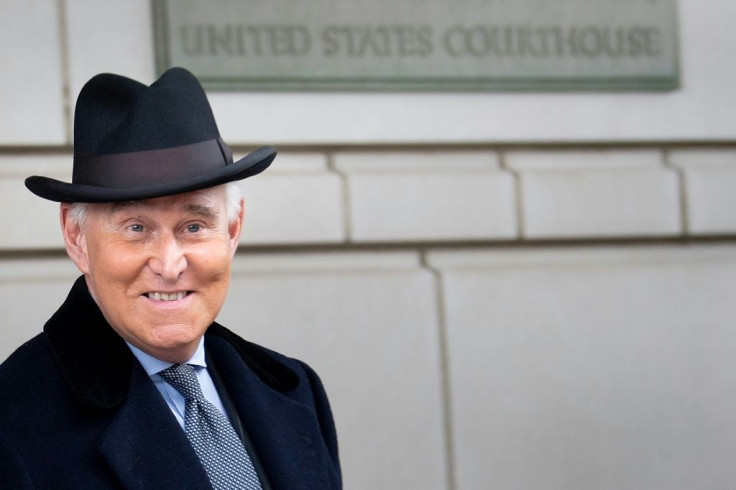Roger Stone Will Avoid Fine, Supervised Release Thanks To President Trump's Clemency

KEY POINTS
- Roger Stone will avoid a heavy fine and supervised release, along with his more than three-year prison sentence, thanks to President Trump's commutation
- The judge who presided over Stone's cases has asked for additional details about the clemency order
- Trump's decision to commute Stone's sentence has been met with sharp criticism by members of Congress and legal experts
A federal judge set a Tuesday deadline for the administration to explain whether presidential adviser and longtime friend Roger Stone will receive any supervision now that his sentence has been commuted.
The White House on Monday released additional details of President Trump's decision. Stone was convicted of multiple charges of making false statements to Congress, witness tampering and obstructing an official proceeding as part of special counsel Robert Mueller’s investigation of Russian interference in the 2016 presidential election. Stone was sentenced to 40 months in federal prison, two-years of supervised release and a $20,000 fine. He has appealed, alleging juror bias.
The White House said Monday Trump's commutation not only spares Stone prison time, it eliminates a heavy fine and the two years of supervised release -- a condition imposed on most freed felons. The commutation came ahead of Stone's scheduled surrender this week to prison authorities.
“I commute the entirety of the prison sentence imposed upon the said Roger Stone Jr. to expire immediately,” Trump’s order said. “I also commute the entirety of the two-year term of supervised released with all its conditions, and finally, I remit any unpaid balance of the $20,000 fine imposed.”
Trump added: “Roger Stone is a victim of the Russia hoax that the left and its allies in the media perpetuated for years in an attempt to undermine the Trump presidency,” the White House’ press release on Stone’s commutation said. “There was never any collusion between the Trump campaign, or the Trump administration, with Russia. Such collusion was never anything other than a fantasy of partisans unable to accept the result of the 2016 election.”
U.S. District Judge Amy Berman Jackson, who presided over Stone’s case, has demanded the administration explain if Stone would be supervised at all. She set a Tuesday deadline for the explanation.
Trump’s decision has been met with heavy backlash by members of Congress and the legal experts, who called it a blatant act of cronyism and corruption. Sen. Mitt Romney, R-Utah, took to Twitter to voice his outrage at the decision.
Unprecedented, historic corruption: an American president commutes the sentence of a person convicted by a jury of lying to shield that very president.
— Mitt Romney (@MittRomney) July 11, 2020
Robert Mueller also voiced his displeasure in the Washington Post during the weekend.
“A jury later determined [Stone] lied repeatedly to members of Congress. He lied about the identity of his intermediary to WikiLeaks. He lied about the existence of written communications with his intermediary,” Mueller said in an op-ed. “He lied by denying he had communicated with the Trump campaign about the timing of WikiLeaks' releases. He in fact updated senior campaign officials repeatedly about WikiLeaks. And he tampered with a witness, imploring him to stonewall Congress.”
© Copyright IBTimes 2025. All rights reserved.





















